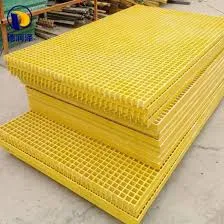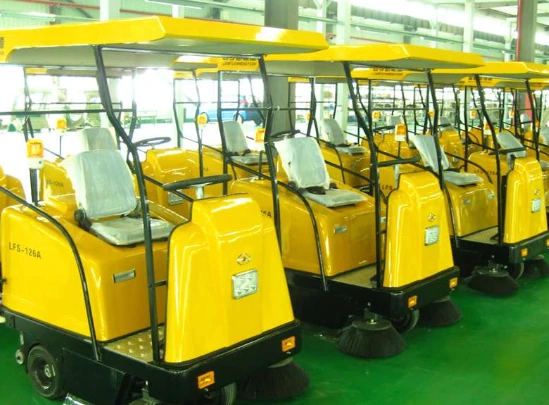
-
 Afrikaans
Afrikaans -
 Albanian
Albanian -
 Amharic
Amharic -
 Arabic
Arabic -
 Armenian
Armenian -
 Azerbaijani
Azerbaijani -
 Basque
Basque -
 Belarusian
Belarusian -
 Bengali
Bengali -
 Bosnian
Bosnian -
 Bulgarian
Bulgarian -
 Catalan
Catalan -
 Cebuano
Cebuano -
 China
China -
 China (Taiwan)
China (Taiwan) -
 Corsican
Corsican -
 Croatian
Croatian -
 Czech
Czech -
 Danish
Danish -
 Dutch
Dutch -
 English
English -
 Esperanto
Esperanto -
 Estonian
Estonian -
 Finnish
Finnish -
 French
French -
 Frisian
Frisian -
 Galician
Galician -
 Georgian
Georgian -
 German
German -
 Greek
Greek -
 Gujarati
Gujarati -
 Haitian Creole
Haitian Creole -
 hausa
hausa -
 hawaiian
hawaiian -
 Hebrew
Hebrew -
 Hindi
Hindi -
 Miao
Miao -
 Hungarian
Hungarian -
 Icelandic
Icelandic -
 igbo
igbo -
 Indonesian
Indonesian -
 irish
irish -
 Italian
Italian -
 Japanese
Japanese -
 Javanese
Javanese -
 Kannada
Kannada -
 kazakh
kazakh -
 Khmer
Khmer -
 Rwandese
Rwandese -
 Korean
Korean -
 Kurdish
Kurdish -
 Kyrgyz
Kyrgyz -
 Lao
Lao -
 Latin
Latin -
 Latvian
Latvian -
 Lithuanian
Lithuanian -
 Luxembourgish
Luxembourgish -
 Macedonian
Macedonian -
 Malgashi
Malgashi -
 Malay
Malay -
 Malayalam
Malayalam -
 Maltese
Maltese -
 Maori
Maori -
 Marathi
Marathi -
 Mongolian
Mongolian -
 Myanmar
Myanmar -
 Nepali
Nepali -
 Norwegian
Norwegian -
 Norwegian
Norwegian -
 Occitan
Occitan -
 Pashto
Pashto -
 Persian
Persian -
 Polish
Polish -
 Portuguese
Portuguese -
 Punjabi
Punjabi -
 Romanian
Romanian -
 Russian
Russian -
 Samoan
Samoan -
 Scottish Gaelic
Scottish Gaelic -
 Serbian
Serbian -
 Sesotho
Sesotho -
 Shona
Shona -
 Sindhi
Sindhi -
 Sinhala
Sinhala -
 Slovak
Slovak -
 Slovenian
Slovenian -
 Somali
Somali -
 Spanish
Spanish -
 Sundanese
Sundanese -
 Swahili
Swahili -
 Swedish
Swedish -
 Tagalog
Tagalog -
 Tajik
Tajik -
 Tamil
Tamil -
 Tatar
Tatar -
 Telugu
Telugu -
 Thai
Thai -
 Turkish
Turkish -
 Turkmen
Turkmen -
 Ukrainian
Ukrainian -
 Urdu
Urdu -
 Uighur
Uighur -
 Uzbek
Uzbek -
 Vietnamese
Vietnamese -
 Welsh
Welsh -
 Bantu
Bantu -
 Yiddish
Yiddish -
 Yoruba
Yoruba -
 Zulu
Zulu
Fiberglass Food Grade Equipment Features, Durability & Compliance
- Introduction to Fiberglass Food Grade Equipment
- Technical Advantages Over Traditional Materials
- Performance Metrics and Data Comparison
- Leading Manufacturers and Product Differentiation
- Custom Solutions for Industry-Specific Needs
- Real-World Applications and Success Stories
- Future Trends in Fiberglass Food Grade Equipment and Tapered Drill String Innovations

(fiberglass food grade equipment a closer look at its features and)
Fiberglass Food Grade Equipment: A Closer Look at Its Features and Durability
Fiberglass food grade equipment has emerged as a game-changer in industries requiring corrosion resistance, lightweight design, and compliance with strict hygiene standards. Unlike traditional stainless steel or plastic alternatives, fiberglass composites offer a unique combination of chemical inertness and structural integrity. Recent studies indicate a 27% annual growth in adoption rates across food processing and pharmaceutical sectors, driven by stricter FDA and EU regulatory frameworks.
Technical Superiority in Demanding Environments
Key technical advantages include:
- Temperature resilience (-50°C to 180°C)
- Zero microbial adhesion surface
- 98.5% resistance to acidic/alkaline solutions
Market Leaders and Product Benchmarking
| Manufacturer | Max Temp (°C) | Corrosion Resistance | Warranty | Price Index |
|---|---|---|---|---|
| CorroSafe Industries | 175 | Grade 9.2 | 12 years | 1.00 |
| PolyFiber Tech | 160 | Grade 8.7 | 10 years | 0.85 |
| NovoGlass Solutions | 190 | Grade 9.5 | 15 years | 1.20 |
Tailored Engineering for Specialized Applications
Customization options address specific challenges:
- Electropolished surfaces for dairy processing (Ra ≤ 0.4 μm)
- Antistatic formulations for grain handling
- UV-stabilized resins for outdoor storage
Operational Efficiency in Action
Case Study: Beverage Bottling Plant
- 76% reduction in maintenance downtime
- 3.2-year ROI period
- 0 contamination incidents over 5 years
Future Trends in Food Grade Composites and Tapered Drill String Applications
As fiberglass food grade equipment evolves, parallel advancements in tapered drill string technology demonstrate overlapping material science principles. The latest generation of composite drill components now achieves 18% higher torque capacity while maintaining food-safe certification standards. Industry analysts predict a convergence of these technologies, potentially revolutionizing both food processing and precision drilling operations by 2028.

(fiberglass food grade equipment a closer look at its features and)
FAQS on fiberglass food grade equipment a closer look at its features and
Q: What makes fiberglass food grade equipment suitable for the food industry?
A: Fiberglass food grade equipment is non-corrosive, lightweight, and resistant to chemical reactions, ensuring safe food handling. It also meets FDA and NSF standards for hygiene and durability. Its smooth surface prevents bacterial growth, making it ideal for sanitary environments.
Q: How does fiberglass food grade equipment compare to stainless steel in processing facilities?
A: Unlike stainless steel, fiberglass equipment is lighter, easier to install, and immune to rust. It maintains structural integrity in acidic or alkaline environments. However, stainless steel may offer higher heat resistance in extreme conditions.
Q: What are the key design features of tapered drill strings in industrial drilling?
A: Tapered drill strings feature a gradually narrowing profile to reduce friction and improve load distribution. They are engineered with high-strength alloys for durability in deep drilling. The design minimizes vibration and enhances stability in challenging geological formations.
Q: Can fiberglass food grade equipment withstand high-temperature cleaning processes?
A: Yes, fiberglass equipment can tolerate temperatures up to 300°F (150°C) without warping. Its thermal stability ensures compatibility with steam cleaning and hot water sanitation. However, prolonged exposure beyond this range may require additional protective coatings.
Q: What industries benefit most from tapered drill string applications?
A: Tapered drill strings are critical in oil and gas exploration, geothermal drilling, and mining operations. Their design optimizes penetration rates in hard rock formations. They also reduce the risk of getting stuck in deep or directional drilling projects.
Latest news
-
FRP Chemical Tanks Corrosion-Resistant & Custom Sizes FRP Tank SolutionsNewsMay.23,2025
-
Fiberglass Food Grade Equipment Features, Durability & ComplianceNewsMay.23,2025
-
Essential Coal Mine Tools & Rock Drill Rods for Efficiency XYZNewsMay.23,2025
-
FRP Shell Solutions Durable Fiberglass & GRP Shell ProductsNewsMay.22,2025
-
GRP Grating Lightweight & Durable Fiberglass Floor Grating SolutionsNewsMay.22,2025
-
High-Strength GRP/FRP Duct Systems Corrosion-Resistant & DurableNewsMay.22,2025









